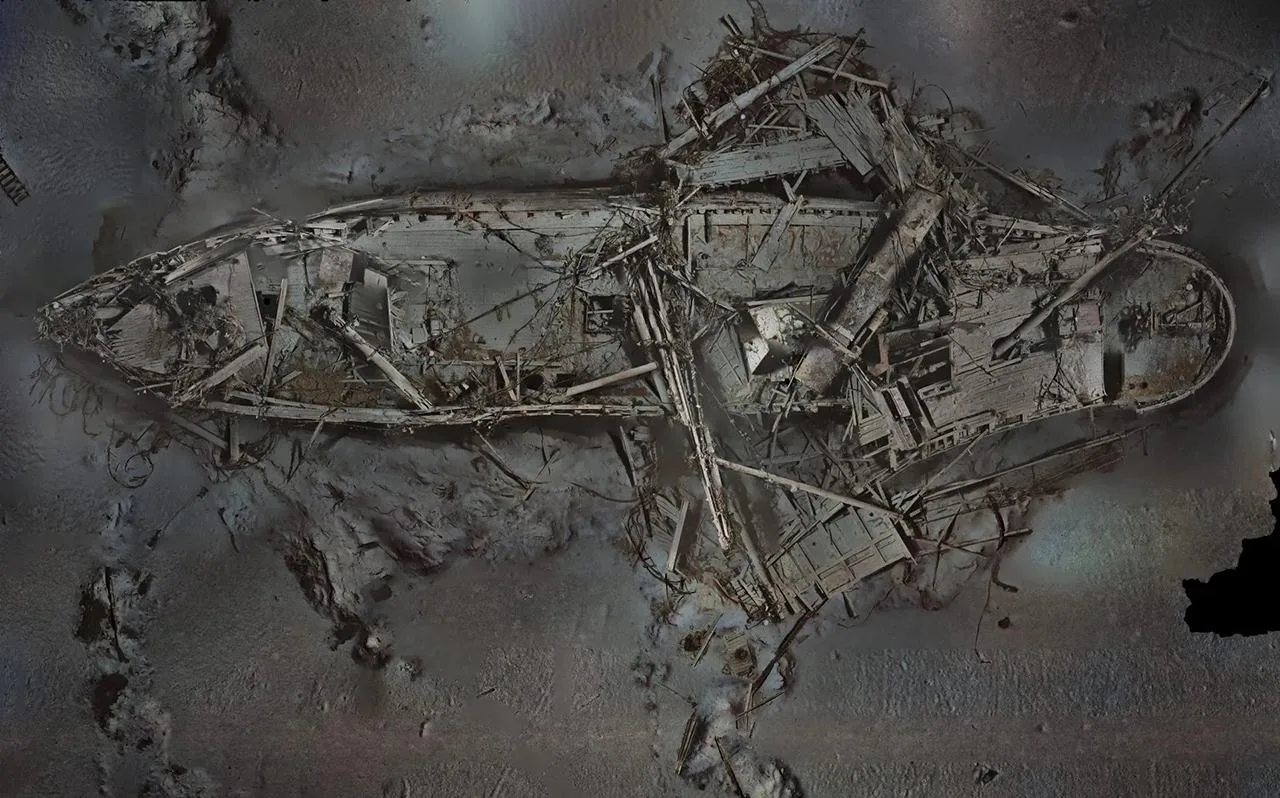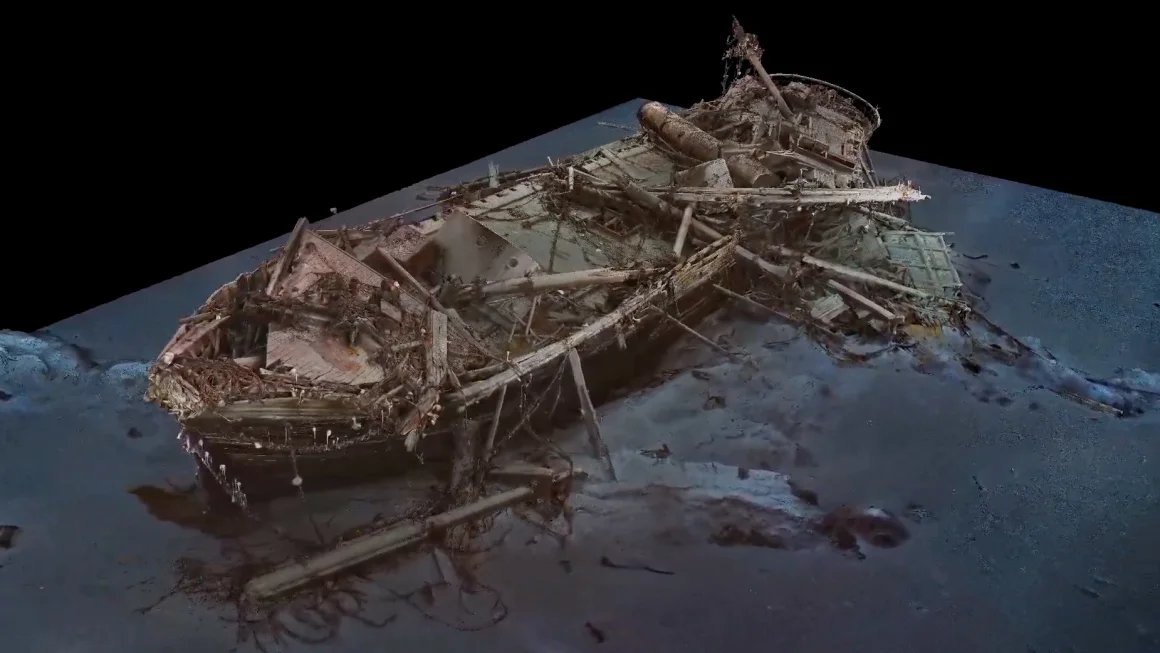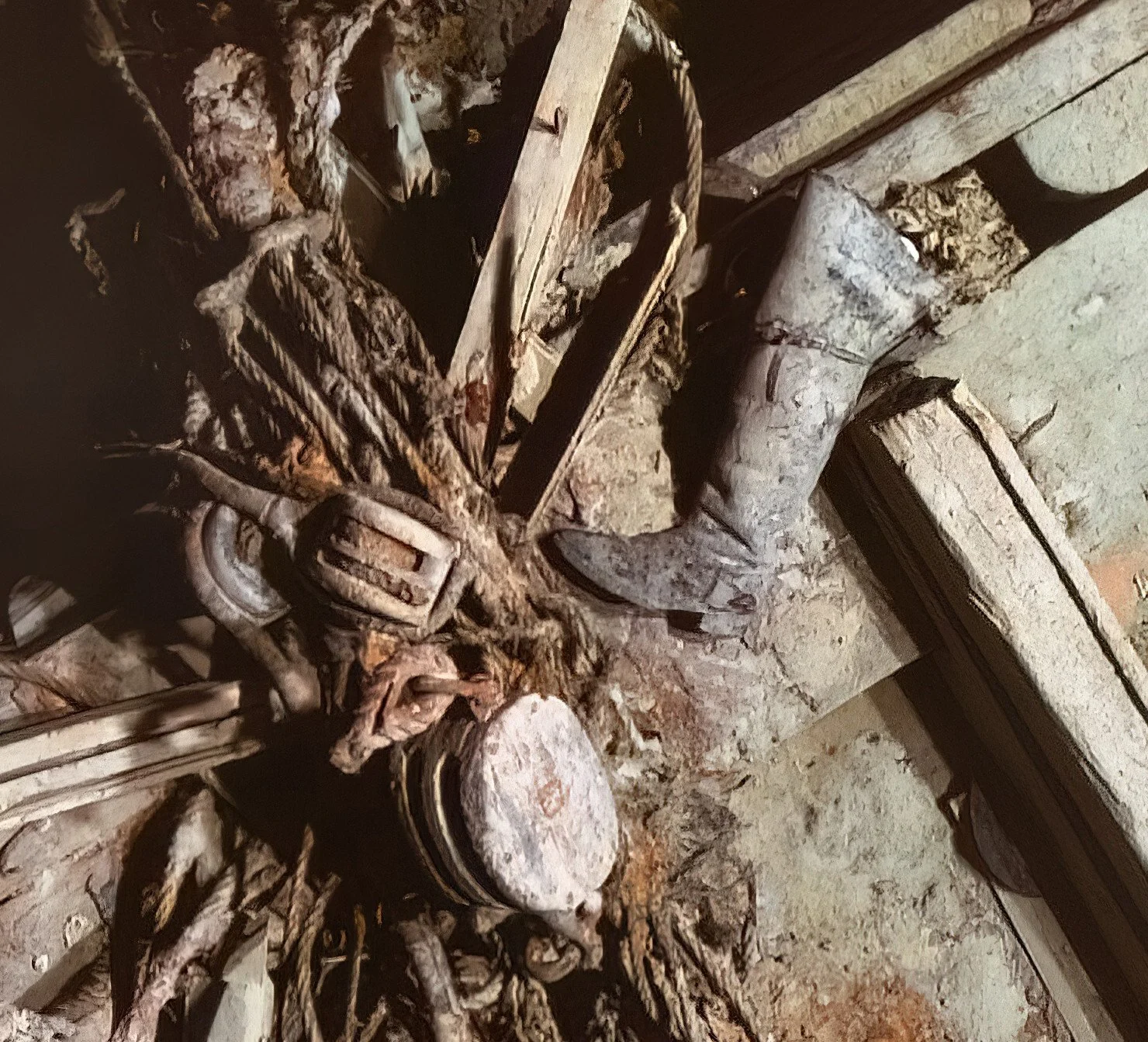This content originally appeared on Open Culture and was authored by Colin Marshall

Photos on this page courtesy of the Falklands Maritime Heritage
Few who hear the story of the Endurance could avoid reflecting on the aptness of the ship’s name. A year after setting out on the Imperial Trans-Antarctic Expedition in 1914, it got stuck in a mass of drifting ice off Antarctica. There it remained for ten months, while leader Sir Ernest Shackleton and his crew of 27 men waited for a thaw. But the Endurance was being slowly crushed, and eventually had to be left to its watery grave. What secures its place in the history books is the sub-expedition made by Shackleton and five others in search of help, which ensured the rescue of every single man who’d been on the ship.

This harrowing journey has, of course, inspired documentaries, including this year’s Endurance from National Geographic, which debuted at the London Film Festival last month and will come available to stream on Disney+ later this fall. “The documentary incorporates footage and photos captured during the expedition by Australian photographer Frank Hurley, who [in 1914] brought several cameras along for the journey,” writes Smithsonian.com’s Sarah Kuta. “Filmmakers have color-treated Hurley’s black-and-white images and footage for the first time. They also used artificial intelligence to recreate crew members’ voices to ‘read’ their own diary entries.”
The fruits of an even more technologically impressive project have been released along with Endurance: a 3D digital model “created from more than 25,000 high-resolution images captured after the iconic vessel was discovered in March 2022.”
As we noted at the time here on Open Culture, the ship was found to be in remarkably good condition after well over a century spent two miles beneath the Weddell Sea. “Endurance looks much like it did when it sank on November 21, 1915. Everyday items used by the crew — including dining plates, a boot and a flare gun — are still easily recognizable among the protected wreckage.”

Endurance has, in other words, endured. Its intactness — which “makes it look as though the ship,” writes CNN.com’s Jack Guy, “has been miraculously lifted out of the Weddell Sea onto dry land in one piece” — is, in its way, as improbable and impressive as Shackleton and company’s survival of its fateful first expedition. The degree of detail captured by this new scan (not technologically feasible back at the time of the last acclaimed documentary on this subject), should make possible further, even deeper research into the story of the Endurance. But one question will remain unanswerable: would that story have resonated quite as long had the ship kept its original name, Polaris?
via Smithsonian.com
Related content:
How an Ancient Roman Shipwreck Could Explain the Universe
See the Well-Preserved Wreckage of Ernest Shackleton’s Ship Endurance Found in Antarctica
Hear Ernest Shackleton Speak About His Antarctic Expedition in a Rare 1909 Recording
Newly Discovered Shipwreck Proves Herodotus, the “Father of History,” Correct 2500 Years Later
Based in Seoul, Colin Marshall writes and broadcasts on cities, language, and culture. His projects include the Substack newsletter Books on Cities and the book The Stateless City: a Walk through 21st-Century Los Angeles. Follow him on Twitter at @colinmarshall or on Facebook.
This content originally appeared on Open Culture and was authored by Colin Marshall
Colin Marshall | Sciencx (2024-11-13T10:00:16+00:00) A New 3D Scan, Created from 25,000 High-Resolution Images, Reveals the Remarkably Well-Preserved Wreck of Shackleton’s Endurance. Retrieved from https://www.scien.cx/2024/11/13/a-new-3d-scan-created-from-25000-high-resolution-images-reveals-the-remarkably-well-preserved-wreck-of-shackletons-endurance/
Please log in to upload a file.
There are no updates yet.
Click the Upload button above to add an update.

